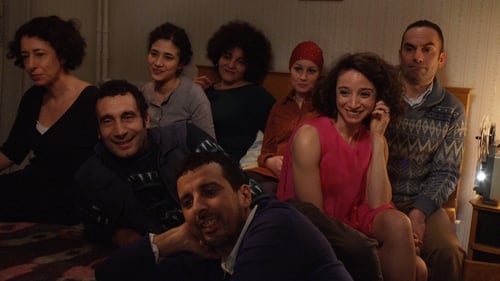
Music

Director of Photography
Mixed with fiction and documentary, the film relives the interviews conducted by the writer Clarice Lispector published in the magazines "Manchete" and "Fatos and Fotos" in the 1970s.

Director of Photography
A collage of newsreels, trailers, clips and other visionary and unseen fragments of sight and sound regarding the late plastic artist Helio Oititica.

Himself

Director of Photography
Argentina, as hosts in 1978, were under great pressure to succeed. Amidst passionate supporters, they progressed to the finals with a wonderful blend of attacking football and tough defending. The unlucky Dutch, now lacking Cruyffs' sublime skills, were the fall guys once again in the Final, losing 3-1 in a classic clash of styles. This 1991 reedited version omits controversial interviews from the 1978 original "Copa 78 - O Poder do Futebol", while also including additional television footage of the tournament and newly dubbed English narration instead of the original Spanish.
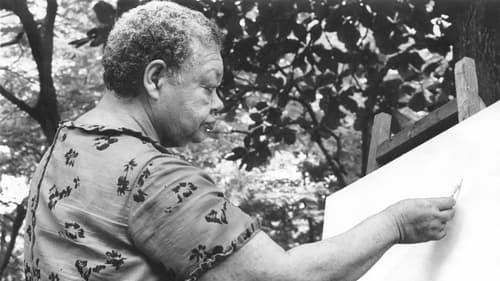
Director of Photography
In hopes of unraveling the causes and cure for various forms of insanity, a psychiatrist in Brazil created the Museum of Images from the Unconscious in 1952. It gathered paintings and drawings made by mental patients from all over Brazil. Many of the works in the museum are paired with the case-histories of the patients who created them in this fascinating film.

Editor
In hopes of unraveling the causes and cure for various forms of insanity, a psychiatrist in Brazil created the Museum of Images from the Unconscious in 1952. It gathered paintings and drawings made by mental patients from all over Brazil. Many of the works in the museum are paired with the case-histories of the patients who created them in this fascinating film.

Sound

Director of Photography
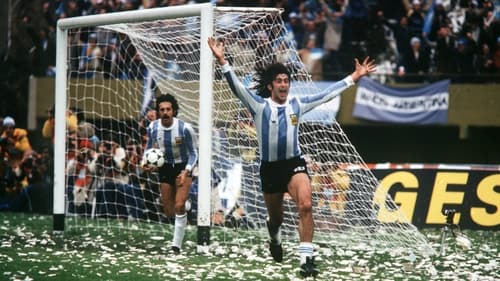
Cinematography
Documentary about the Football World Cup held in Argentina in 1978, focusing on the competition and behind the scenes of the most important soccer competition in the world. Two versions of the 1978 official film exist, the first "Copa 78 - O Poder do Futebol" was made by Brazilian directors Maurício Sherman and Victor di Mello in 1979 but was later withdrawn by FIFA because of its controversial content. The film includes an interview with Rodolfo Galimberti, one of the leaders of the Montoneros guerrilla group and also made accusations that the Argentinian competition organisation committee had deliberately hindered Brazilian chances of success by tampering with the pitch at Mar del Plata.

Camera Operator

Director
1978 French documentary film directed by Jean-Pierre Dutilleux and Luiz Carlos Saldanha on the life of Raoni Metuktire. The film portrays issues surrounding the survival of the indigenous Indian tribes of north central Brazil.
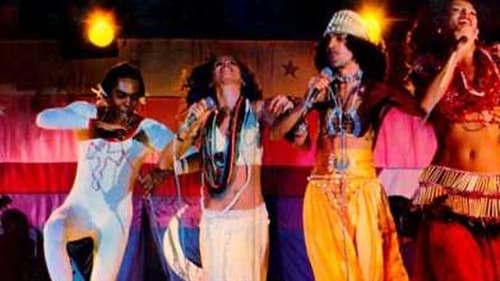
Editor
The film records the commemorative tour of the ten years of the career of the Bahia singers Caetano Veloso, Gilberto Gil, Maria Bethânia and Gal Costa, who formed the group with the name of Doces Bárbaros (Sweet Barbarians), at the suggestion of Bethânia. Conceived to present the shows of the live album that would be released (Doces Bárbaros - Live), the documentary changed of tone when registering the arrest and judgment of Gilberto Gil and of a companion by possession of drugs. Gil was forced to go to a detox clinic, and only went out to participate in the programmed shows.

Editor
The history of Partido-Alto, a musical subgenre derived from Samba, with roots in the batucada of Bahia.

Cinematography
A documentary that presents home movies and several excerpts of known films of famous actress Leila Diniz. Friends of the late actress, tragic killed on a plane crash in 1972, discuss about her life, her work and her legacy in Brazilian culture.

Editor
Documentary on one of Brazil's most controversial personalities: Getúlio Vargas, an ex-president.

Editor

Editor

Director of Photography
This film denounces the exploitation of natural resources by certain industries of extraction and transformation. This documentary is considered as the first Brazilian film on this theme.

Director of Photography
An analysis of the phenomenon of accelerated urbanization in Brazil, and more particularly in Rio de Janeiro and Sao Paulo.

Cinematography
This film shows people with constant psychological and social conflicts: the violence among outlaws, conflicts between man and woman, police and society.

Sound Editor
A short film of lovely poetic, observational elements and interviews with the famed samba singer/songwriter Nelson Antônio da Silva, whose adopted last name ‘Cavaquinho’ refers to the small guitar-like instrument that he played and used to compose his songs.

(segment "Sexta-Feira da Paixão, Sábado de Aleluia")
Film in four segments: "Colagem", "Balanço", "Bandeira Zero" and "Sexta-Feira da Paixão, Sábado de Aleluia", having in common a strongly allegorical and gross protest tone in the approach of its subjects.

Co-Writer
Statistics, interviews and historical information on illiteracy and inequality in land distribution in Brazil's countryside.

Camera Operator
Statistics, interviews and historical information on illiteracy and inequality in land distribution in Brazil's countryside.

Director of Photography
Statistics, interviews and historical information on illiteracy and inequality in land distribution in Brazil's countryside.

Cinematography
Documentary about the history of Jornal do Brasil, founded on April 14, 1891. In 1965, the Jornal do Brasil marked its innovative and active position, as recorded in the documentary "A Seventv-Four- Year-Old Fellow" by the filmmaker Nelson Pereira dos Santos, and the story itself was in charge of confirming. In the following years, the newspaper would witness the most remarkable events of the second half of the twentieth century in Brazil and in the world. It would applaud the democratic struggles and independence of peoples, support social demonstrations against oppression and justice at all levels. Tirelessly, he did not hesitate to report the truth of the facts, regardless of the circumstances in which they presented themselves.
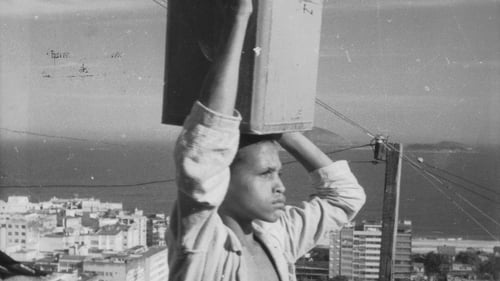
Continuity
Five segments about the hardships faced by people living in slums on hills in Rio de Janeiro.



















